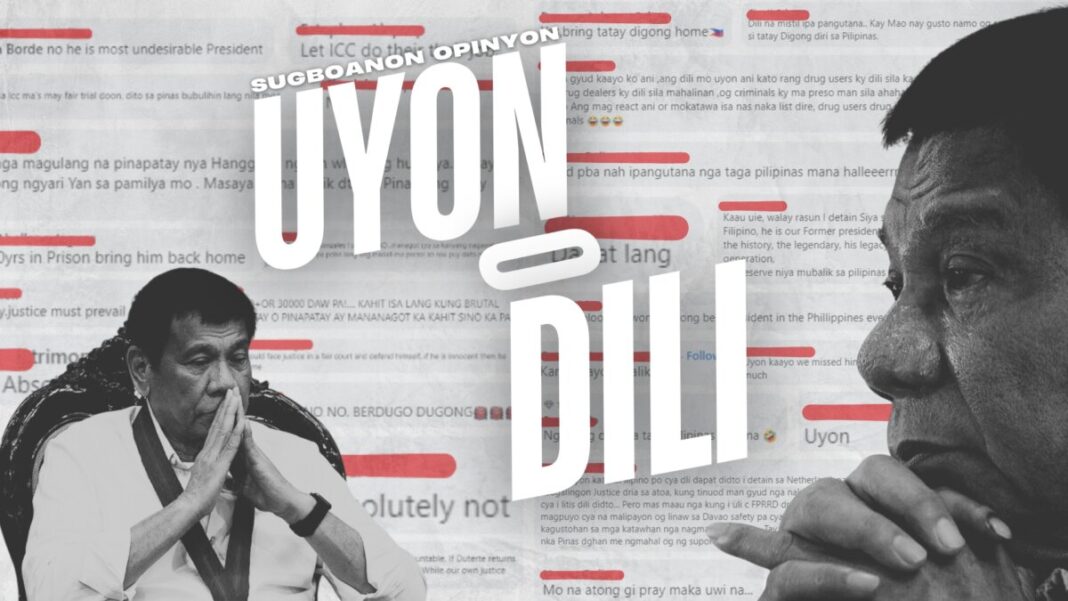We asked Sugboanons their opinions on his arrest and here’s what they shared…

After governing Davao City and the Philippines with his populist and violent tactics, Duterte is now spending his 80th year of existence at The Hague.
It can be recalled that, last March 11, the former president was arrested by the International Criminal Court (ICC) to pursue the ongoing investigation into the situation in the Republic of the Philippines.
Weeks later, Cebuanos demand varying calls from justice to jurisdiction. The polarizing effect of this political situation only grows stronger than ever.
The question stands… should Duterte come back home or should he face the consequences of his crimes?
On Duterte’s Crimes Against Humanity
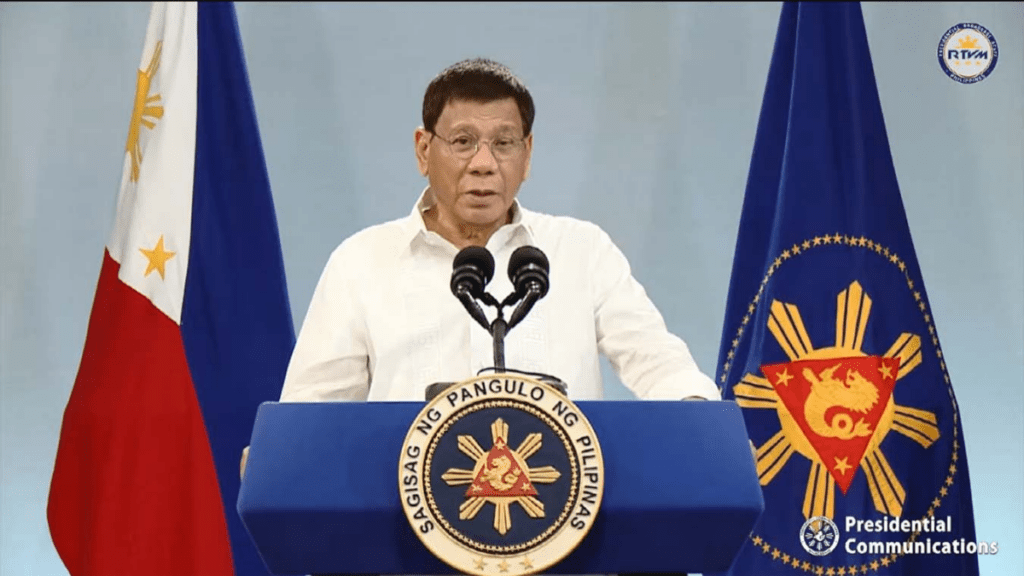
The Office of the Prosecutor of the ICC welcomed the arrest of the former president as part of the ICC’s ongoing investigation into alleged crimes against humanity.
How does one define crimes against humanity in the context of law, more so, in the context of an international court?
Under the Rome Statute, the term crimes against humanity is defined as the “widespread or systematic attack directed against any civilian population.”
This definition is contextualized in Duterte’s controversial “war on drugs” campaign.
That is why the Pre-Trial Chamber I of the ICC issued a warrant for Duterte’s arrest last March 7 to establish reasonable grounds for his criminal responsibility. The crimes are within the ICC’s jurisdiction, as they occurred when the Philippines was a State Party to the Rome Statute.
Do you know what this means? Retracting the country’s membership from the ICC does not mean that Duterte cannot be convicted of his crimes before this.
The ICC expressed that this development marks a significant step towards accountability for victims of serious crimes in the Philippines.
Despite these claims, there are Cebuanos who continue to assert their claims on safety and security during the former president’s term. Meanwhile, human rights groups and victims stood their ground in demanding justice.
On the Extra-Judicial Killings in Cebu
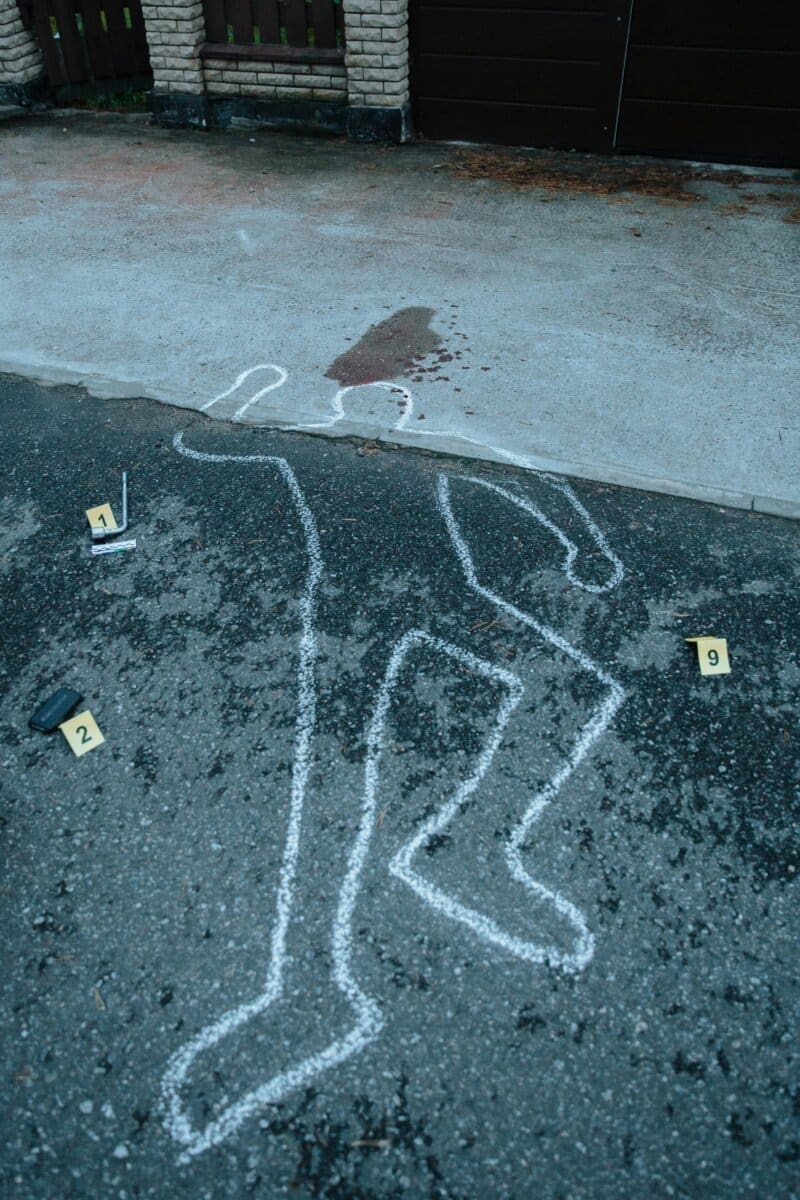
While reactions and sentiments are as varied as they come, the truth can be derived from the facts. Studies show that the data on extra-judicial killings during the former president’s term was not limited to the statistics revealed by the government.
Data from the Dahas Project, a running count of the reported drug-related killings in the Philippines, shows that there are 3,017 deaths during the first three and a half years of the Duterte regime.
Out of this death toll, Cebu province reached a total of 109 recorded killings.
The Philippine Center for Investigative Journalism claimed that the official count of drug-related killings by the Philippine National Police is only around 6,000. On the flip side, human rights groups assert that the actual number reaches up to 30,000, including those unrecorded.
But, did you know that extra-judicial killings are not only limited to drug users and pushers?
The innocent, including young children, fell victim to such violence as well. Because they were not directly involved in drugs, most were treated as “collateral damage” to the bloody campaign.
The 4-year-old Bladen Skyler Abatayo is a prime example–a child who was hit by a stray bullet during the operations at Sitio Bato, Ermita, Cebu City.
Aside from the unforeseen demise of the young innocent, human rights defenders, community organizers, and activists were also not given due process for the accusations against them.
Instead, the victims were held at gunpoint and paraded around as trophies for the “successful” term of the former president.
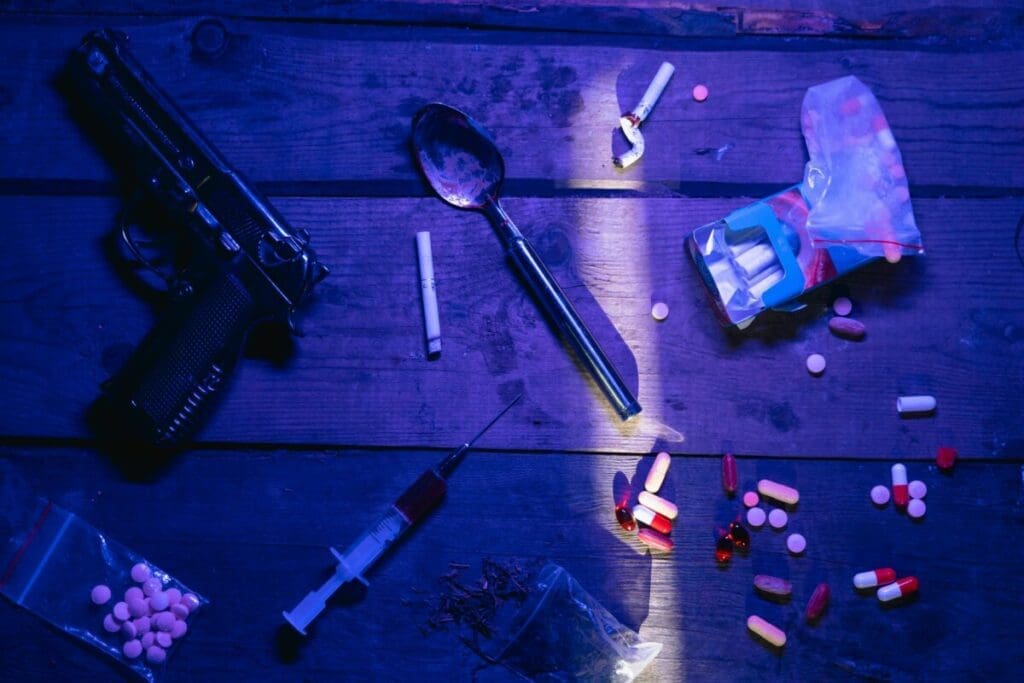
This ultimately begs the question of justice under an administration that resorts to violence as a form of addressing its issues on drugs, poverty, and counterinsurgency.
On Birthday Wishes for the Former President
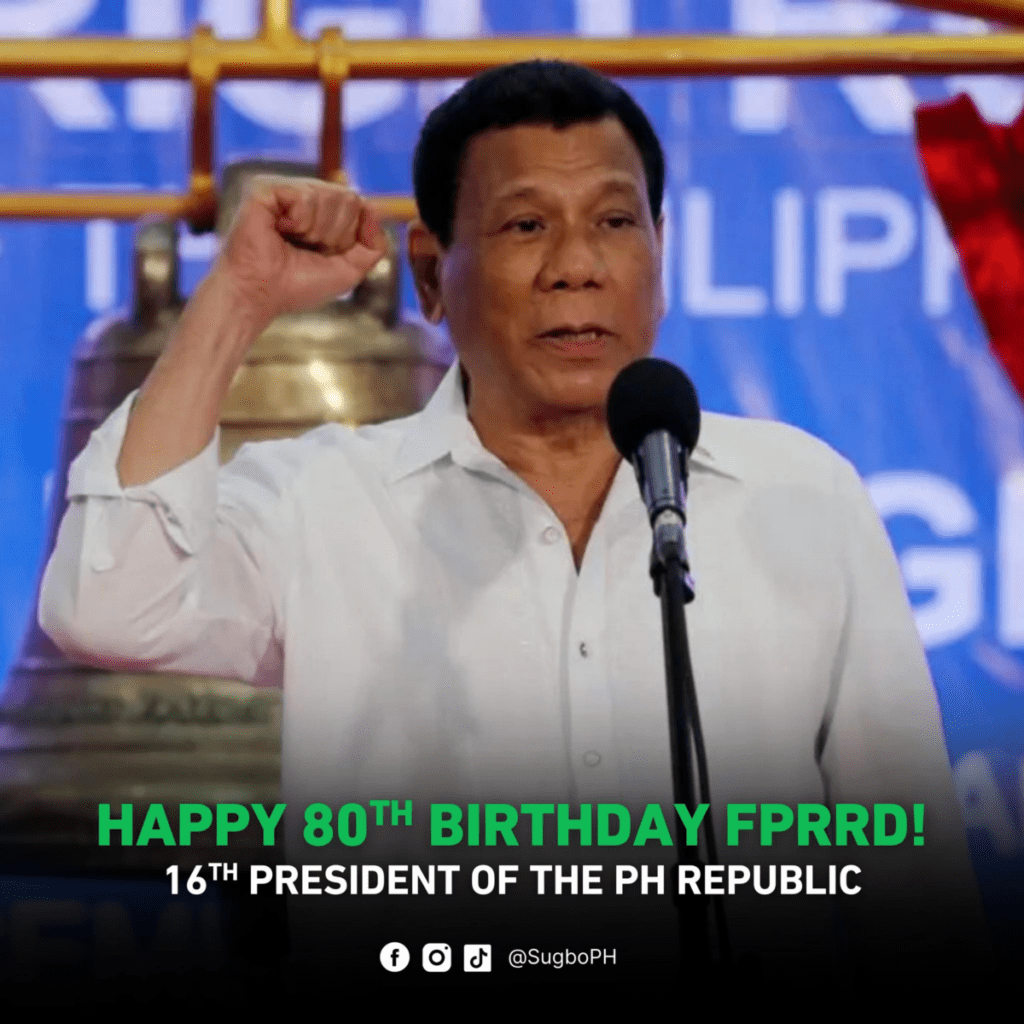
Last March 28, Filipinos around the world gave their birthday greetings. There are some who even organized celebrations for the former president, even though he is spending his day far from home.
His supporters clamored for his return to the country. “Come back home, Tatay Digong!” they exclaimed amid their lavish parties.
These sentiments are shared across the Philippines as they extend to Sugboanons who called for his release from The Hague.
On the Sentiments of Cebuanos
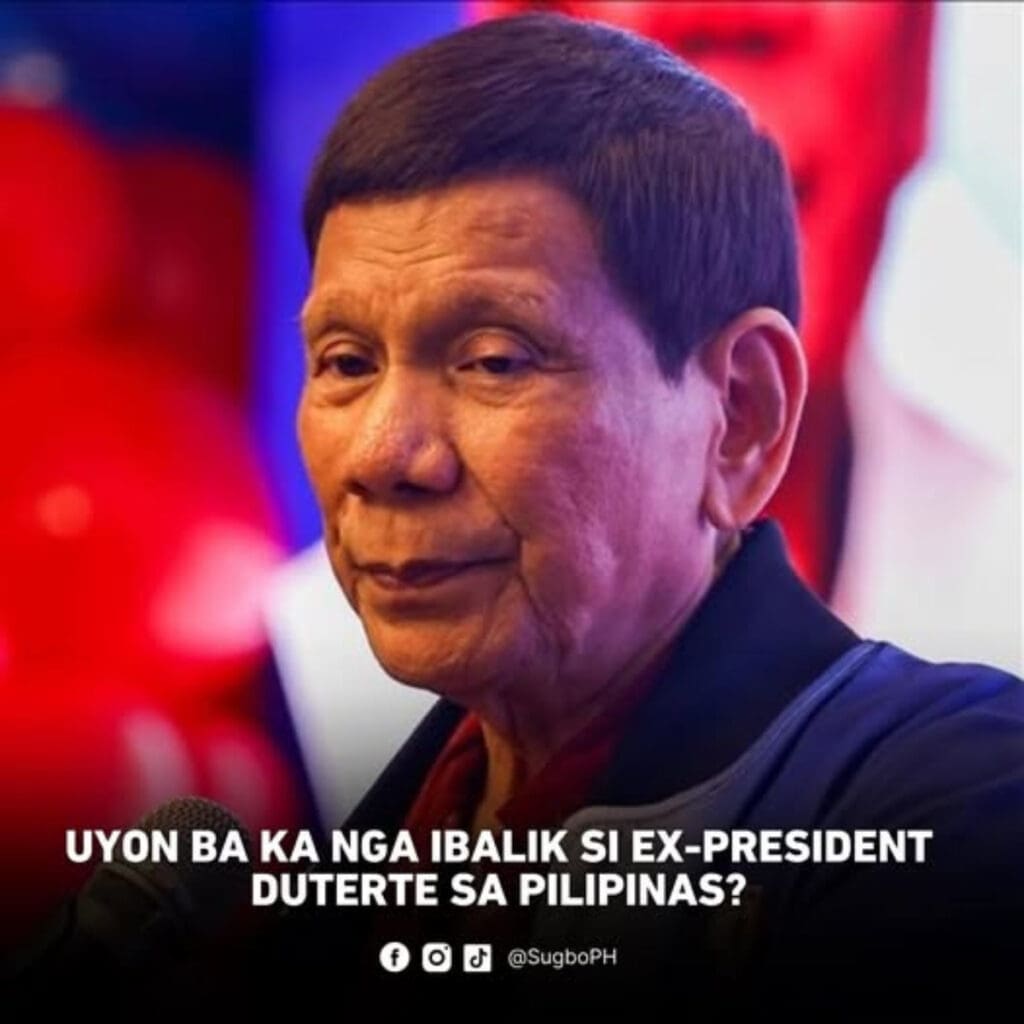
Cebu is currently polarized in political stances, which reflects the sentiments of the population on Duterte’s arrest and ongoing investigation.
There are Cebuanos who stand in solidarity with Duterte, praying and begging for him to be returned to the Philippines.

The definition of justice may vary for every Cebuano. Some want justice for the victims of drug users and pushers, while other Cebuanos view the issue from a holistic point of view.
The latter believes that the issue of drug addiction must be solved like a mental health problem and not as a criminal case. This also extends to other extra-judicial killings that occurred due to the lack of comprehensive and long-term solutions.

At the end of the day, Cebuanos still unite in one thing: the call for peace in ensuring justice and safety.
This only poses a challenge to future policymakers and government officials in making Cebu safe, with no Cebuano left behind or made collateral damage in the process.
Now, we ask you: what is your birthday wish for Duterte? The heavier question stands… what is your wish for Sugboanons and the Filipino people?

